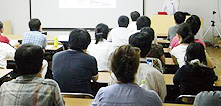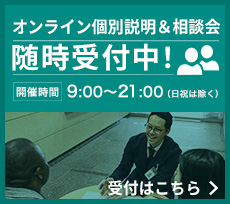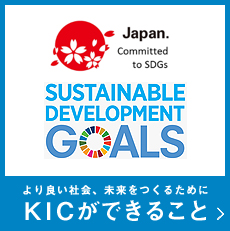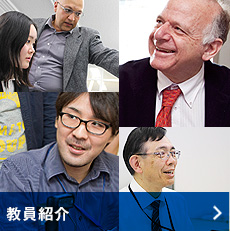- HOME
- ICT INNOVATOR COURSE
- ICTイノベータコース研究室紹介
- ルクムエナ センダ 准教授 研究室
ルクムエナ センダ 准教授 研究室
Innovation and smart cities using ICT in developing countries.
研究室の概要
This Lab investigates ways in which ICT4D can be utilized to bring about socially innovative and resilient delivery in urban and peri-urban areas—this year special emphasis goes to social infrastructure in developing countries. Students are encouraged to read and interpret the space physical arrangement of the urban area in which they reside during their research time as a reference for improving their respective cities, in countries of origin. The Lab has four (M1 ABE & PEACE) students, two from Afghanistan and two from Mozambique. Their researches cover various subjects. They include solid urban waste, Environmental Impact assessment of Mining with GIS Remote Sensing, flood management with emphasis on prevention; and urban agriculture to deal with food security This lab is culturally diverse, it is also pluridisciplinary, creating an environment that affords all the students an opportunity to take back home a trans-border body of knowledge that KIC can be proud of.
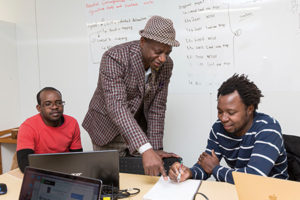
主な研究分野・テーマ
Main research is Reading, Analyzing and Interpreting the Space Physical arrangement in urban and peri-urban areas using ICT4D for smart Delivery. Main Topics include ・Urban solid waste management in and around Kabul city ・Environmental Impact assessment of Mining with GIS Remote Sensing ・Urban and Peri-urban Agriculture Model Based on Transit Oriented Development (TOD) to Ensure Better Quality of Life (Qol), Food Security and Nutrition in Mozambique (Inhambane Province – Inhambane City). ・An Integrated Information System for flood Management in Mozambique (Web-QGIS)-Case Study Zambezia Province
研究・指導方法
・Basically, instruction is achieved through a Triangilar Learning approach–Instructor to student, Student to student, Students to Instructor. ・Literature review provides for referential data, the use of ICT4D and Tankyu Practice learned at KIC provide the students with the needed technologies while the field survey provide for (i) quantitative data through questionnaire and qualitative through interviews by the researcher in the country of origin. ・The combination of the above makes up the framework of the research. End note Given the cultural environment found at KIC, it is my belief that, at completion of the research program, each student will take back a body of knowledge going beyond borders of a list three countries, a trans-borders knowledge, one that KIC can excellently offer
研究室修了生インタビュー
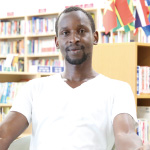
Clifford Otieno Ochieng
ケニア共和国出身
Participants of the lab come from diverse and culturally rich backgrounds i.e. Asian, Middle Eastern and African as well as academic and professional backgrounds including Architecture, Urban Planning, Civil Engineering and ICT. Consequently, interactions in the lab are rich in perspective of the developing world. nlLab conducts discussions through triangular approach (Instructor to students, Student to student, Students to Instructor) My research intends to examine Streetlights as a cyber-physical social system, a platform, an enabler of Smart Social cities. Through the research, I purpose to re-think the place of the streetlights as part of a continuously evolving and increasingly networked urban infrastructure that can enable cities to improve the quality of life of City-zens, address real needs with effective and long-term quality services.


